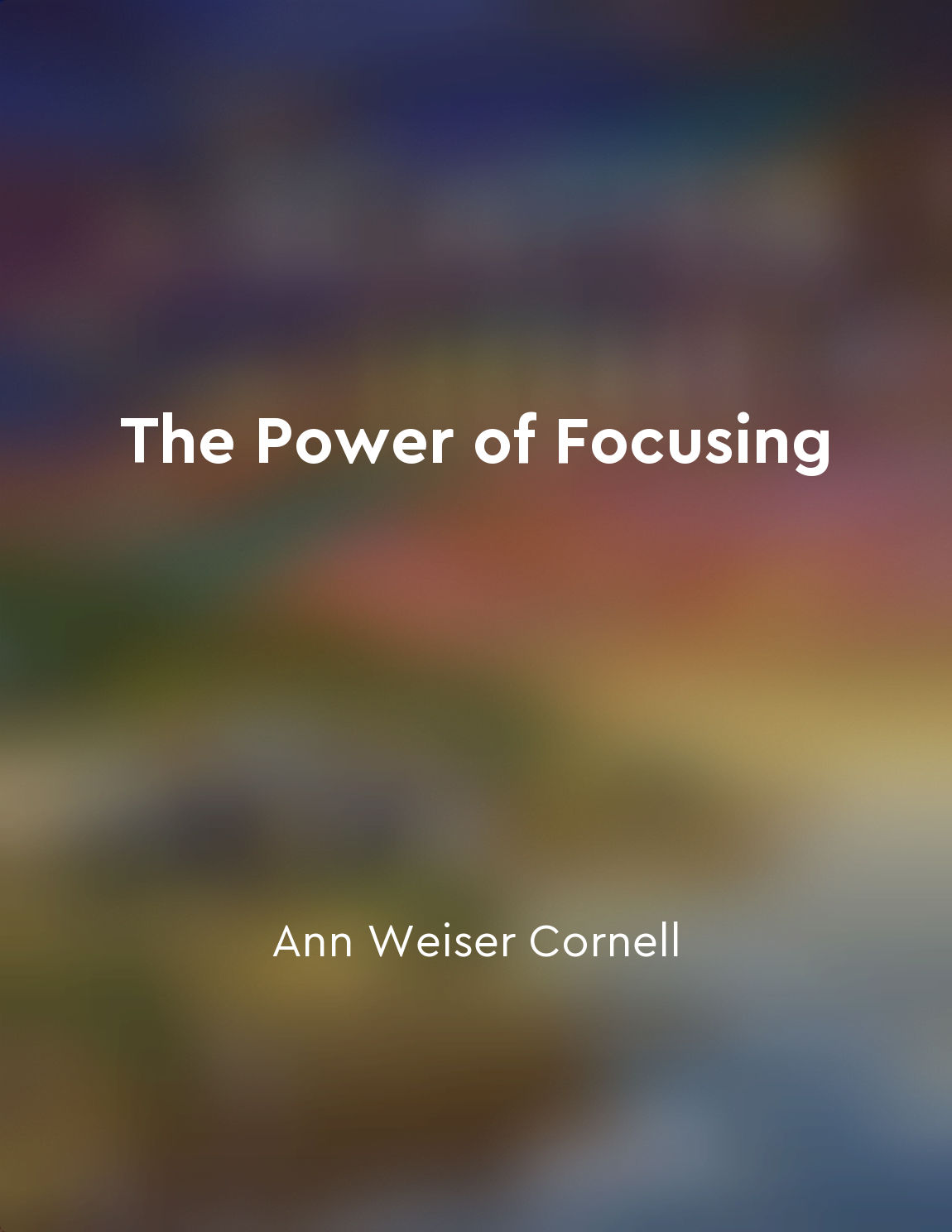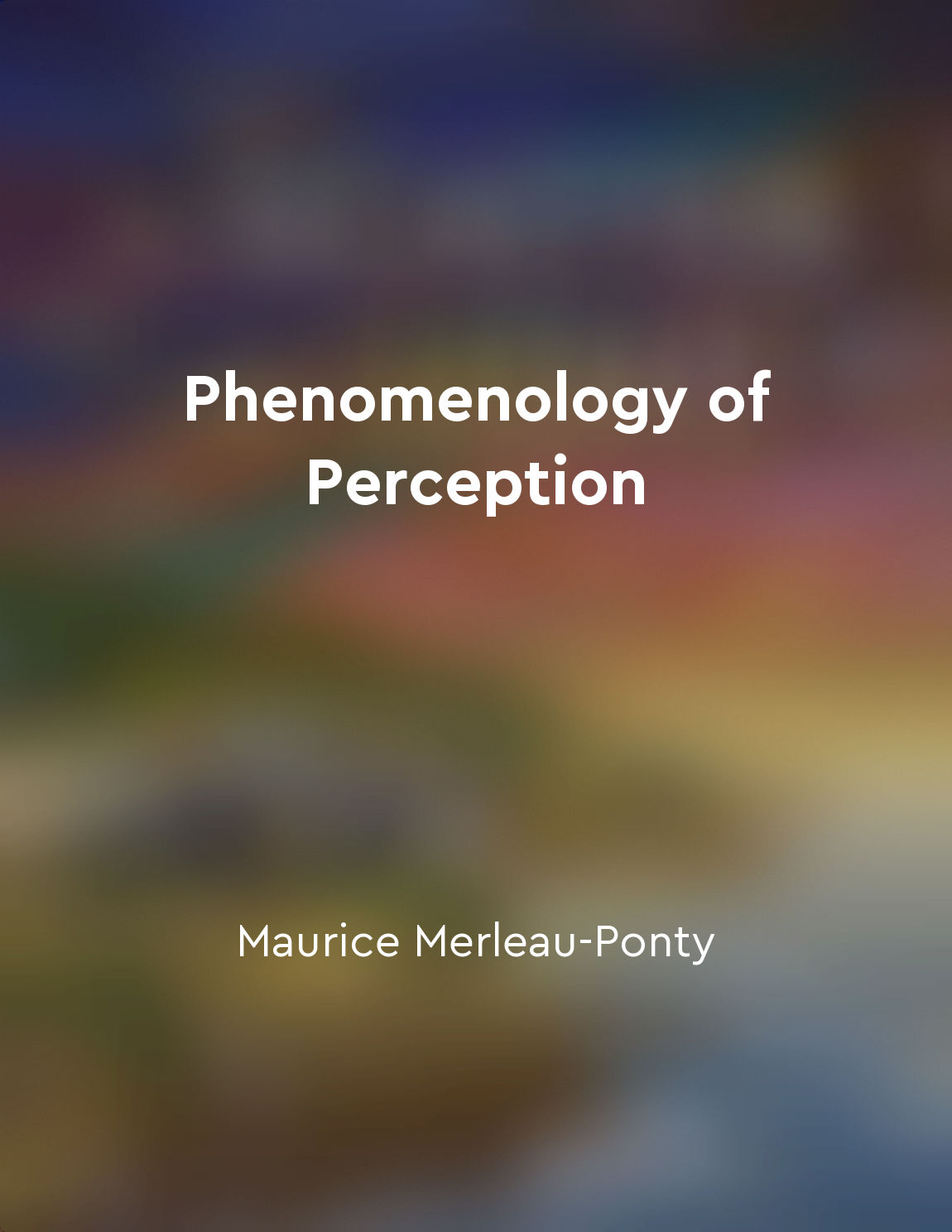Consciousness is always embodied from "summary" of Phenomenology of Perception by Maurice Merleau-Ponty
At the heart of the phenomenological investigation lies the profound recognition that consciousness is inherently intertwined with the body. This fundamental insight challenges the traditional dualistic view that posits a strict separation between mind and body, suggesting instead a deeply intertwined relationship where the body is not merely a vessel for consciousness, but an integral part of its very constitution. Embodiment is not simply a matter of physical presence in the world, but a dynamic and reciprocal engagement with the environment. The body is not just a passive object acted upon by consciousness; rather, it actively shapes and informs our experience of the world. Our perceptions, emotions, and actions are all mediated through the body, which serves as the primary means through which we engage with and make sense of the world around us. This embodied nature of consciousness is evident in the way that our bodily experiences are not just physical sensations, but are imbued with meaning and significance. For example, the feeling of warmth from the sun on our skin is not just a purely tactile sensation, but carries with it a sense of comfort, pleasure, or nostalgia. Our bodily experiences are always already intertwined with our emotional, cognitive, and cultural frameworks, shaping the way we interpret and make sense of the world. Moreover, our bodily experiences are not isolated events, but are part of a larger gestalt of embodied existence. Our movements, gestures, and bodily postures are not just individual actions, but are part of a broader bodily schema that reflects our habitual ways of being and interacting with the world. This bodily schema is not fixed or predetermined, but is constantly evolving and adapting in response to our interactions with the environment. In this way, consciousness is always embodied, in the sense that our bodily experiences are not separable from our cognitive and emotional lives. The body is not a passive object that merely houses consciousness, but is an active and integral part of our lived experience. This recognition of the embodied nature of consciousness opens up new possibilities for understanding the rich and complex ways in which we engage with the world and make sense of our place within it.Similar Posts

The body holds valuable information that can guide one towards healing
Our bodies have a language all their own. They communicate with us through sensations, feelings, and emotions that arise within...
Mindful movement enhances body awareness
When children engage in mindful movement, they are encouraged to pay attention to their bodies in a way that increases their bo...
Gender is performative
In a world where everything is a performance, gender is no exception. It is not something we are born with but rather something...
Understanding time requires a leap of intuition
To truly grasp the nature of time, one must be willing to take a leap of intuition. This leap is not one that can be logically ...
Bodymind integration is essential for well-being
The connection between the body and mind is fundamental to our well-being. Our bodies have a language of their own, communicati...

Trusting your body's wisdom can lead to transformative change
When we tune into our body's sensations and feelings, we tap into a deep well of wisdom that can guide us towards transformativ...

Learning to listen to the body's messages can enhance emotional wellbeing
When we tune into our bodies and pay attention to the subtle messages they are sending us, we can greatly improve our emotional...

The body is always situated in a specific context
The body is never a mere physical entity but is always intertwined with its surrounding world. This intertwining occurs through...
